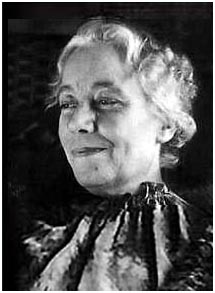
Personality psychology is a branch of psychology that examines personality and its variation among individuals. It aims to show how people are individually different due to psychological forces. Its areas of focus include:
Neurosis is a term mainly used today by followers of Freudian thinking to describe mental disorders caused by past anxiety, often that has been repressed. In recent history, the term has been used to refer to anxiety-related conditions more generally.
Psychoanalytic theory is the theory of personality organization and the dynamics of personality development relating to the practice of psychoanalysis, a clinical method for treating psychopathology. First laid out by Sigmund Freud in the late 19th century, psychoanalytic theory has undergone many refinements since his work. The psychoanalytic theory came to full prominence in the last third of the twentieth century as part of the flow of critical discourse regarding psychological treatments after the 1960s, long after Freud's death in 1939. Freud had ceased his analysis of the brain and his physiological studies and shifted his focus to the study of the psyche, and on treatment using free association and the phenomena of transference. His study emphasized the recognition of childhood events that could influence the mental functioning of adults. His examination of the genetic and then the developmental aspects gave the psychoanalytic theory its characteristics. Starting with his publication of The Interpretation of Dreams in 1899, his theories began to gain prominence.
Narcissistic personality disorder (NPD) is a personality disorder characterized by a life-long pattern of:

Perfectionism, in psychology, is a broad personality trait characterized by a person's concern with striving for flawlessness and perfection and is accompanied by critical self-evaluations and concerns regarding others' evaluations. It is best conceptualized as a multidimensional and multilayered personality characteristic, and initially some psychologists thought that there were many positive and negative aspects. Maladaptive perfectionism drives people to be concerned with achieving unattainable ideals or unrealistic goals that often lead to many forms of adjustment problems such as depression, anxiety, OCD, OCPD and low self-esteem. These adjustment problems often lead to suicidal thoughts and tendencies and influence or invite other psychological, physical, social, and further achievement problems in children, adolescents, and adults. Although perfectionist sights can reduce stress, anxiety, and panic, recent data, compiled by British psychologists Thomas Curran and Andrew Hill, show that perfectionistic tendencies are on the rise among recent generations of young people.
Neo-Freudianism is a psychoanalytic approach derived from the influence of Sigmund Freud but extending his theories towards typically social or cultural aspects of psychoanalysis over the biological.
Coping refers to conscious strategies used to reduce unpleasant emotions. Coping strategies can be cognitions or behaviors and can be individual or social. Coping is to deal with and overcome struggles and difficulties in life. It is a way for us to maintain our mental and emotional well-being. Everybody has a way of handling the hard events that occur in our life and that is what it means to cope. Coping can be healthy and productive, or destructive and unhealthy for you or others. It is recommended that an individual copes in ways that will be beneficial and healthy. "Managing your stress well can help you feel better physically and psychologically and it can impact your ability to perform your best."
In Freudian Ego psychology, psychosexual development is a central element of the psychoanalytic sexual drive theory. Freud believed that personality developed through a series of childhood stages in which pleasure seeking energies from the child became focused on certain erogenous areas. An erogenous zone is characterized as an area of the body that is particularly sensitive to stimulation. The five psychosexual stages are the oral, the anal, the phallic, the latent, and the genital. The erogenous zone associated with each stage serves as a source of pleasure. Being unsatisfied at any particular stage can result in fixation. On the other hand, being satisfied can result in a healthy personality. Sigmund Freud proposed that if the child experienced frustration at any of the psychosexual developmental stages, they would experience anxiety that would persist into adulthood as a neurosis, a functional mental disorder.

Social rejection occurs when an individual is deliberately excluded from a social relationship or social interaction. The topic includes interpersonal rejection, romantic rejection and familial estrangement. A person can be rejected or shunned by individuals or an entire group of people. Furthermore, rejection can be either active, by bullying, teasing, or ridiculing, or passive, by ignoring a person, or giving the "silent treatment". The experience of being rejected is subjective for the recipient, and it can be perceived when it is not actually present. The word "ostracism" is also commonly used to denote a process of social exclusion.

Repetition compulsion is the unconscious tendency of a person to repeat a traumatic event or its circumstances. This may take the form of symbolically or literally re-enacting the event, or putting oneself in situations where the event is likely to occur again. Repetition compulsion can also take the form of dreams in which memories and feelings of what happened are repeated, and in cases of psychosis, may even be hallucinated.
Individual psychology is a psychological method or science founded by the Viennese psychiatrist Alfred Adler. The English edition of Adler's work on the subject (1925) is a collection of papers and lectures given mainly between 1912 and 1914. The papers cover the whole range of human psychology in a single survey, and were intended to mirror the indivisible unity of the personality.

Narcissism is a self-centered personality style characterized as having an excessive preoccupation with oneself and one's own needs, often at the expense of others.
Basic hostility is a psychological concept first described by psychoanalyst Karen Horney. Horney described it as aggression which a child develops as a result of "basic evil". Horney generally defines basic evil as "invariably the lack of genuine warmth and affection". Basic evil includes all range of inappropriate parental behavior – from lack of affection to abuse. This situation of abuse and torment that can not be avoided or escaped causes kids to have a higher level of irritability. The same can be said for anxiety.
In the study of psychology, neuroticism has been considered a fundamental personality trait. In the Big Five approach to personality trait theory, individuals with high scores for neuroticism are more likely than average to be moody and to experience such feelings as anxiety, worry, fear, anger, frustration, envy, jealousy, pessimism, guilt, depressed mood, and loneliness. Such people are thought to respond worse to stressors and are more likely to interpret ordinary situations, such as minor frustrations, as appearing hopelessly difficult. The responses can include maladaptive behaviors, such as dissociation, procrastination, substance use, etc., which aids in relieving the negative emotions and generating positive ones.
Resistance, in psychoanalysis, refers to the client's defence mechanisms that emerge from unconscious content coming to fruition through process. Resistance is the repression of unconscious drives from integration into conscious awareness.
Feminine psychology or the psychology of women is an approach that focuses on social, economic, and political issues confronting women all throughout their lives. It emerged as a reaction to male-dominated developmental theories such as Sigmund Freud's view of female sexuality. The original work of Karen Horney argued that male realities cannot describe female psychology or define their gender not because they are not informed by girls' or women's experiences. Theorists, like Horney, claimed this new feminist approach of women's experiences being different than men's was required, and that women's social existence was crucial in understanding their psychology. It is suggested in Dr. Carol Gilligan's research that some characteristics of female psychology emerge to comply with the given social order defined by men and not necessarily because it is the nature of their gender or psychology.

Karen Horney was a German psychoanalyst who practised in the United States during her later career. Her theories questioned some traditional Freudian views. This was particularly true of her theories of sexuality and of the instinct orientation of psychoanalysis. She is credited with founding feminist psychology in response to Freud's theory of penis envy. She disagreed with Freud about inherent differences in the psychology of men and women, and she traced such differences to society and culture rather than biology.
Psychodynamic models of emotional and behavioral disorders originated in a Freudian psychoanalytic theory which posits that emotional damage occurs when the child's need for safety, affection, acceptance, and self-esteem has been effectively thwarted by the parent.

Neurosis and Human Growth: The Struggle Toward Self-Realization is the magnum opus of German-American psychoanalyst Karen Horney. In it she outlines her theory of neurosis.

Richard M. Ryckman was an American psychologist and textbook author. He taught and conducted research in the areas of personality psychology, social psychology, and health psychology at the University of Maine from 1967 until his retirement in 1999.






